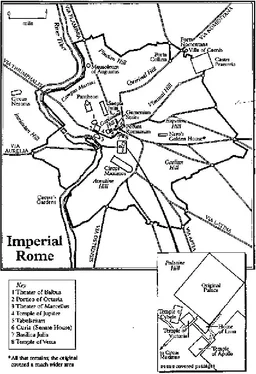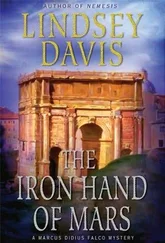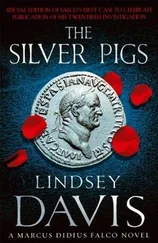Lindsey Davis - The course of Honor
Здесь есть возможность читать онлайн «Lindsey Davis - The course of Honor» весь текст электронной книги совершенно бесплатно (целиком полную версию без сокращений). В некоторых случаях можно слушать аудио, скачать через торрент в формате fb2 и присутствует краткое содержание. Жанр: История, на английском языке. Описание произведения, (предисловие) а так же отзывы посетителей доступны на портале библиотеки ЛибКат.
- Название:The course of Honor
- Автор:
- Жанр:
- Год:неизвестен
- ISBN:нет данных
- Рейтинг книги:5 / 5. Голосов: 1
-
Избранное:Добавить в избранное
- Отзывы:
-
Ваша оценка:
- 100
- 1
- 2
- 3
- 4
- 5
The course of Honor: краткое содержание, описание и аннотация
Предлагаем к чтению аннотацию, описание, краткое содержание или предисловие (зависит от того, что написал сам автор книги «The course of Honor»). Если вы не нашли необходимую информацию о книге — напишите в комментариях, мы постараемся отыскать её.
The course of Honor — читать онлайн бесплатно полную книгу (весь текст) целиком
Ниже представлен текст книги, разбитый по страницам. Система сохранения места последней прочитанной страницы, позволяет с удобством читать онлайн бесплатно книгу «The course of Honor», без необходимости каждый раз заново искать на чём Вы остановились. Поставьте закладку, и сможете в любой момент перейти на страницу, на которой закончили чтение.
Интервал:
Закладка:
"Just Caenis."
The repartee over, Aglaus was at his most unhelpful now. Caenis smiled over the change in his tone as he erected his fences. No one would get past him.
"He wants her," prompted the equerry.
"I shall tell her."
"I must see her."
"She won't see you. Listen; we expected this. You are to say: ‘Antonia's freedwoman thanks the Emperor for remembering her, but she is not free to come.' "
The equerry was none too keen on reporting this rhetoric to a twelve-lictor general with a tricky reputation. "I can't say that!"
"You must. So long as you don't ask him for money he doesn't bite. By the way, regarding money—you always do have to ask him, and when you do he always bites. As for this, tell him straight out—then stand back a bit, just in case."
"Oh, she can't!"
"Yes she can."
"Extraordinary woman!"
Aglaus said, "He's an extraordinary man."
Then it was over.
* * *
Her freedman left her a short time to compose herself, then stumped in. "You all right?" She nodded but did not speak. "Want anything?"
"Leave me alone."
"Yes, madam!" He waited.
"What is it, Aglaus?"
"If you don't need me, I'll go out for a walk. As there's nothing going on here, would you object if later I invited in one of my friends?"
"Do what you like," replied Caenis drably.
She was well aware that as her slave Aglaus had felt free to consort in her kitchen with every kind of unsavory customer. There had never been any disturbances, so she had never stopped him. He spared her the trouble of being asked for permission. Then, when she gave him his freedom, he had married with a promptness that informed her it was an established relationship; three children appeared overnight. She had told him she was annoyed, because if she had known they existed she could have been spoiling them.
Now Caenis barked at him tetchily, "Just do what you like. Rome has a new emperor, and its citizens can play all night."
He returned her sourness with a short puff of laughter. "Fun, isn't it, madam?" Later he went off, with a distinct pang of uncertainty at leaving her alone in the empty house.
He was quite right; there was something Caenis intended to do.
* * *
Once all was silent Caenis rose and walked stiffly to her room. She had always hated fuss, but there was a routine she sometimes followed, so for perhaps an hour she attended to her person as thoroughly as she had previously attacked her home. Even Veronica might have approved.
Her house had its own water supply, so from head to foot she washed off the grime of her day's labor. She bathed twice; Veronica had always held a theory that the first time only moved the dirt about. Slowly, thinking of Veronica, Caenis oiled her still-elastic skin. Years of sitting properly and standing well, combined with regular swimming, had preserved her figure and fine carriage. Her life had turned out much less hard than she had once imagined it must. There had been decent food, rest, time and money enough to nourish both body and soul. She had lived simply from choice, but there was always rose water and almond oil, then later perfumes and unguents that were more exotic, more expensive, more silky to apply, more agreeable and subtle to wear. She used them now, enjoying the tonic of massaged limbs, a face that felt groomed but not sticky or rigid with paint, manicured hands, clean-scented hair.
In other ways, even better ways, life had been generous. She had known contentment and a quiet mind. Whatever happened to her now, never again would she feel that tearing sense of unfulfillment she had struggled against as a young girl. She was born a slave; she won herself the rank of a Roman citizen. She had belonged to a family. Not as a slave; not as a freedwoman: in her own right she had become a Flavian.
From her fastidious wardrobe she chose a light formal gown that always made her feel graceful, which she fastened on the shoulders with two British bluestone brooches. No other jewelry . . . none at all. She held her gold bangle in her hand.
She walked back to the room where Aglaus had left her; on his eventual return he would look for her there. She sat down. It was rather like preparing to take Antonia's dictation. She cleared her mind of all thought and all pain, all prospects of the future, all yearning for the past.
She felt like Cleopatra, bereft of her Mark Antony; Caenis, who herself bore Mark Antony's name, waiting like Cleopatra for the last exulting Roman to stride into her palace and confront her. Cleopatra, robed in a blue that was clearer and deeper than gentians: Cleopatra, defeated, on the day that she died.
FORTY-ONE
Rome: city of light.
Aglaus had found his friend on the Palatine. Now they were striding down from the old administrative Palace, across the eastern end of the Forum, and toward the Quirinal. They walked swiftly, for the city was humming and this was not an occasion for a quiet evening stroll. By now there were few people about. Some took no notice of the two men; others looked after them thoughtfully, as they disappeared unobtrusively, heading for the Viminal Gate.
At the Forum they had paused. They had come on to the Via Sacra, just by the round Temple of Vesta with its little pointed roof and distinctive latticework. Looking to their left down the long southern edge of the Forum, past the Julian courthouse and the massive portico of the Temple of Saturn, they could see at the far end the Tabularium, solid as a harbor wall around the base of the Capitol. Above it, the brow of the hill stood shockingly altered. Gone was the glittering roof of the Temple of Jupiter, gone the Temple itself. All the buildings that clothed the lower flanks of the hill were blackened; some leaned dangerously, others were reduced to occasional half-walls upthrust in stark jags to the evening sky. To the far right beside the prison, deserted and deceptively bathed in sunlight, lay the Gemonian Steps, where the bodies of dead traitors were flung.
Without a word they moved on.
It was the time of the evening that took the breath away. As the dusk fell, there was always this magical moment in Rome, when the tufa blocks of the buildings and the pavements seemed to reflect their own glow, exuding an aureole of mellow golden light, faintly tinged rose, as if that light had been held back like the day's warmth within the city's stones and now slowly released itself. The freedman with the blue chin smiled.
A city of statues. At every crossroad, on every level, before and beside every temple, clustering around every square: faces both men knew so well they normally hardly noticed them became suddenly vivid that evening. Some tranquil eyes stared out over their heads; others followed them. The gods, the generals, the Caesars—impassive noble faces in gilded marble and bronze, soon to be joined by Vespasian's wrinkled brow and blithe expression. Catching Aglaus' thought, his companion smiled faintly too. His expression was ironical.
A city of water. The fountains played only a little sluggishly as the pressure sank after an exceptional draft of millions of gallons had been sucked from the aqueducts into the bathhouses, which took priority. Fountain spray drifted across the deserted streets in a fine haze. Occasionally as they crossed a paved-in conduit they could hear the chuckling of the water that rushed so energetically from the baths toward the mighty caverns of the main sewers.
The Romans were in their houses. After the joyous excitement of their Emperor's long-awaited entry that afternoon, only their litter remained behind in the streets. They were at home, snatching at food, loudly comparing notes on what they had managed to see. Later that night every one of them was to sit down by voting tribe and district to a thanksgiving banquet, the whole city feasting like a big cheerful family presided over by their fatherly Emperor.
Читать дальшеИнтервал:
Закладка:
Похожие книги на «The course of Honor»
Представляем Вашему вниманию похожие книги на «The course of Honor» списком для выбора. Мы отобрали схожую по названию и смыслу литературу в надежде предоставить читателям больше вариантов отыскать новые, интересные, ещё непрочитанные произведения.
Обсуждение, отзывы о книге «The course of Honor» и просто собственные мнения читателей. Оставьте ваши комментарии, напишите, что Вы думаете о произведении, его смысле или главных героях. Укажите что конкретно понравилось, а что нет, и почему Вы так считаете.












